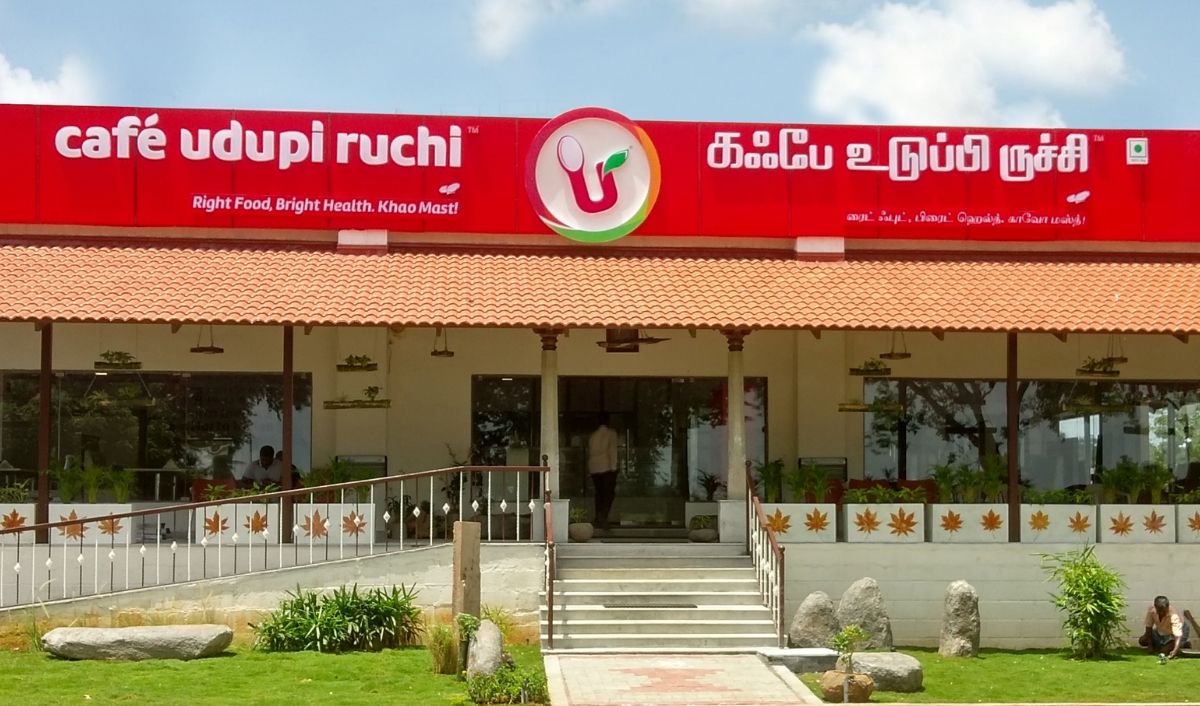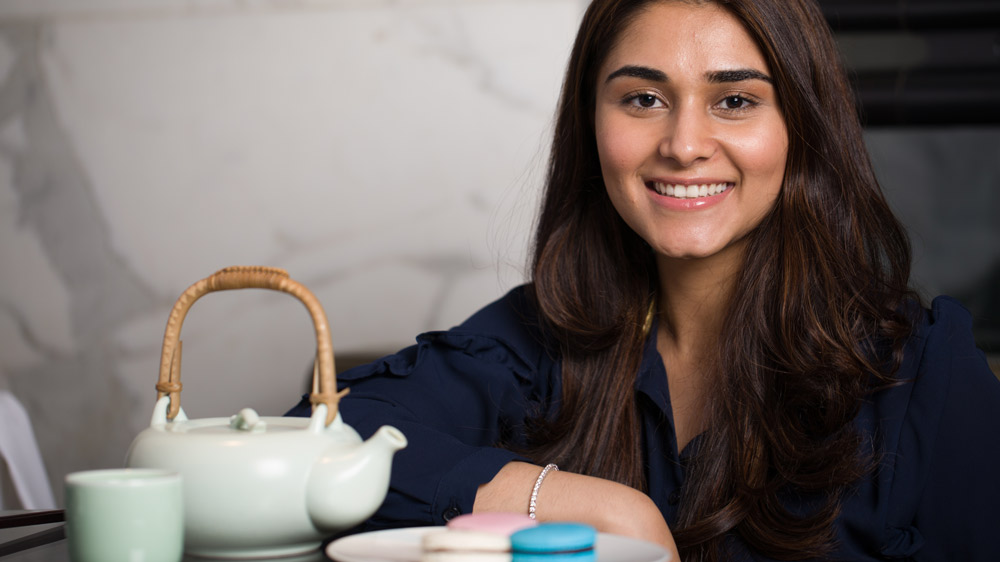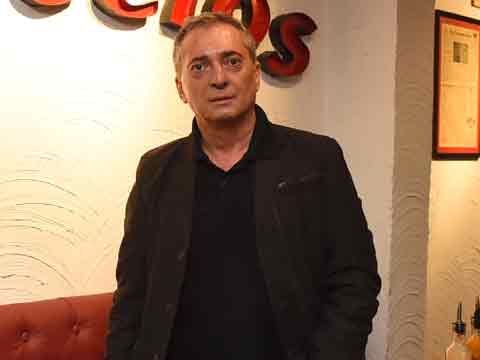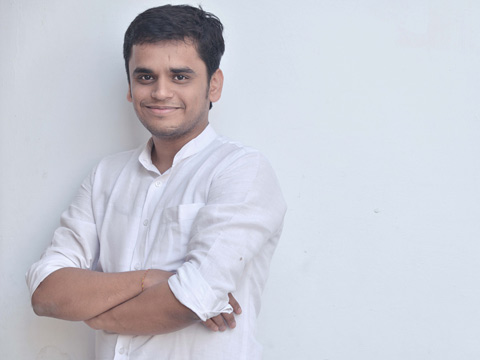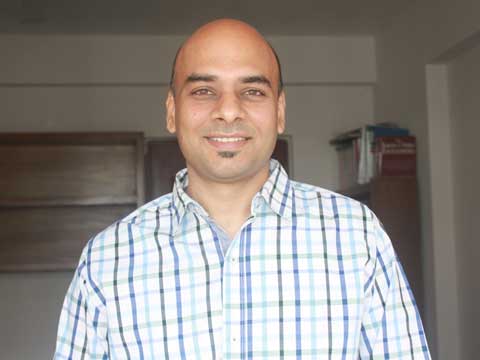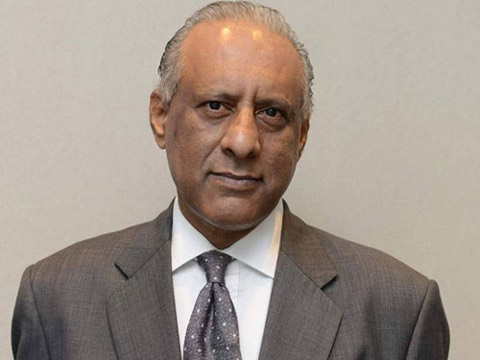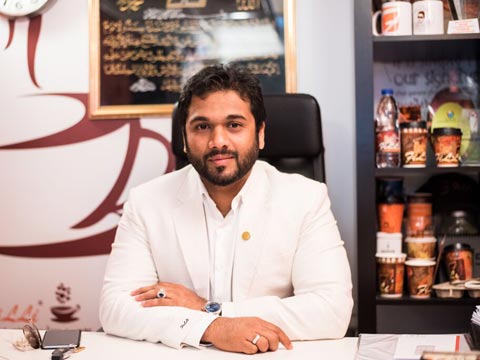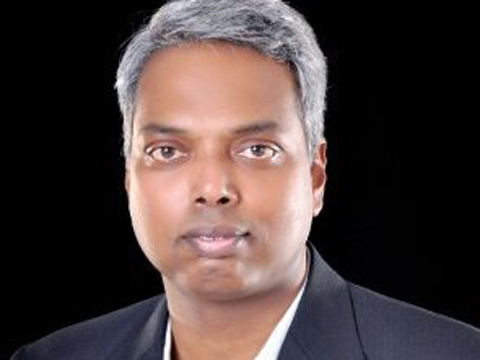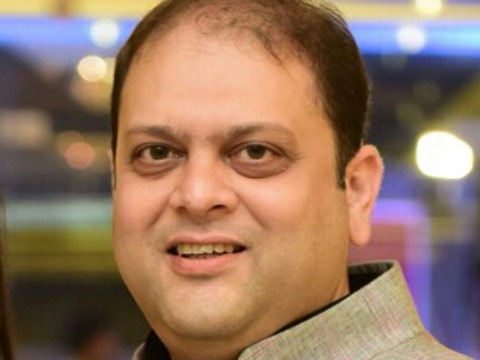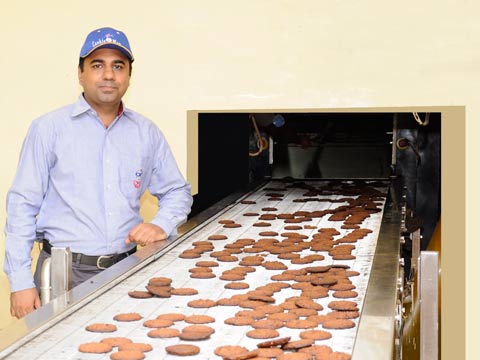
As a Starbucks enthusiast, We've witnessed the coffee giant's ever-evolving menu over the years. While we're always excited about new seasonal offerings, there's something bittersweet about saying goodbye to beloved favorites. Whether permanently discontinued or temporarily unavailable, these Starbucks items have left an impression on many coffee lovers. Let's take a nostalgic journey through the Starbucks menu items that no longer grace the display cases and drink boards.
The Great 2025 Menu Overhaul
In February 2025, Starbucks announced a significant change under new CEO Brian Niccol's "Back to Starbucks" initiative. The company plans to cut approximately 30% of menu items by September 2025, starting with 13 beverages that were eliminated on March 4, 2025.
Frappuccino Farewell
The most noticeable casualties are from the Frappuccino family, with nine varieties being discontinued:
- Espresso Frappuccino (Try a Coffee Frappuccino with an added espresso shot instead)
- Caffè Vanilla Frappuccino (Substitute with a Coffee Frappuccino with vanilla syrup)
- Java Chip Frappuccino (The Mocha Cookie Crumble Frappuccino makes a great replacement)
- White Chocolate Mocha Frappuccino (Time to try the standard Mocha Frappuccino)
- Chai Crème Frappuccino (Consider a Vanilla Bean Frappuccino as an alternative)
- Caramel Ribbon Crunch Crème Frappuccino (Vanilla Bean Frappuccino is suggested)
- Double Chocolaty Chip Crème Frappuccino (Another one where Vanilla Bean is the recommended substitute)
- Chocolate Cookie Crumble Crème Frappuccino (You guessed it – Vanilla Bean Frappuccino)
- White Chocolate Crème Frappuccino (Vanilla Bean Frappuccino to the rescue again)
Other 2025 Discontinued Drinks
Along with the Frappuccinos, these four beverages were also removed:
- Iced Matcha Lemonade (Try Green Tea Lemonade instead)
- White Hot Chocolate (Can be replicated with a regular Hot Chocolate customized with white chocolate mocha sauce)
- Royal English Breakfast Latte (The London Fog Latte is recommended as a similar option)
- Honey Almondmilk Flat White (A standard Flat White with non-dairy milk is the suggested alternative)
Fan-Favorite Items From Years Past
Beyond the recent cuts, many Starbucks enthusiasts still reminisce about discontinued beverages and food items from previous years.
Seasonal Specials We Miss
Some of the most beloved seasonal beverages that are no longer available include:
- Salted Caramel Mocha - This fall favorite featuring toffee nut and mocha syrups was discontinued in 2021, leaving a caramel-shaped hole in many hearts.
- Gingerbread Latte - A holiday staple that has disappeared from U.S. menus, much to the dismay of gingerbread fans.
- S'mores Frappuccino - This summer favorite evoked camping memories with its marshmallow-infused goodness.
- Dark Cherry Mocha - A Valentine's Day special that gained a devoted following before being discontinued.
- Pumpkin Cheesecake Bar - While pumpkin spice lattes remain, this highly missed seasonal treat is no longer available.
Limited-Time Innovations
Starbucks has introduced numerous innovative drinks that were only available for a short period:
- Unicorn Frappuccino - The colorful, Instagram-worthy beverage that took social media by storm in 2017.
- Witch's Brew Frappuccino - A Halloween special with a memorable appearance that cast a spell on customers.
- Oleato Caffé Latte With Oat Milk - An olive oil-infused drink introduced and discontinued in 2024 due to lack of customer interest.
- Juniper Latte - A distinctive winter offering with pine-like notes that divided opinion.
- Midnight Mint Mocha Frappuccino - A cooling mint chocolate creation that refreshed during warmer months.
Refreshers and Teas Gone Too Soon
Tea and refresher drinks have seen significant changes over the years:
- Valencia Orange Refresher - One of the original refresher flavors that has since been discontinued.
- Cool Lime Refresher - A refreshing summer option that's no longer available for those hot days.
- Very Berry Refresher - A fruity favorite that customers still ask about.
- Guava White Tea Lemonade - A tropical tea blend that brought a taste of vacation to everyday life.
- Teavana Shaken Iced White Tea - Removed after Starbucks' acquisition of Teavana.
Food Items We Can't Forget
The food menu has also seen notable departures:
- Cookie Dough Cake Pop - A sweet treat that many customers hope will return someday.
- Holiday Turkey & Stuffing Sandwich - A seasonal sandwich reminiscent of Thanksgiving dinner.
- Bantam Bagels - Mini stuffed bagels that had a devoted following before disappearing.
- Thai Chicken Wrap Protein Box - A protein-packed lunch option that balanced flavor and nutrition.
- Honey Pistachio Croissant - A unique pastry option that paired perfectly with coffee.
- Double Chocolate Loaf - A rich chocolate bread that satisfied sweet cravings.
- Tomato and Cheese Croissant - Introduced with La Boulange acquisition, then later discontinued.
Temporary Shortages: When Supply Chain Issues Strike
Beyond permanent discontinuations, Starbucks has faced temporary shortages that affected menu availability, especially during the supply chain disruptions of 2021:
- Chai tea bags and iced green tea - Leading to disappointed tea lovers.
- Hazelnut syrup and toffee nut syrup - Affecting many popular customized drinks.
- Oat milk products - Shortly after their introduction, demand outpaced supply.
- Cinnamon Dolce Latte ingredients - Making this sweet and spicy favorite temporarily unavailable.
- White Chocolate Mocha components - A popular flavor profile that became hard to find.
- Strawberry Acai base for refreshers - Leaving refresher fans without their fruity fix.
During this period, Starbucks placed approximately 25 items on "temporary hold" across the U.S., showing how global supply issues can affect even the biggest coffee chains.
What's Next for Starbucks?
While saying goodbye to these items, Starbucks continues to innovate. Spring 2025 brings:
- Return of lavender beverages, including Iced Lavender Cream Oatmilk Matcha and Iced Lavender Oatmilk Latte
- New Iced Cherry Chai beverage
- New food item: Jalapeño Chicken Pocket
- The Cortado, introduced in January 2025, which has exceeded performance expectations
The Cyclical Nature of Coffee Culture
The constantly changing Starbucks menu represents the evolution of coffee culture itself. While we may mourn the loss of favorites like the Java Chip Frappuccino or Salted Caramel Mocha, these changes make room for new innovations that might become tomorrow's classics.
The tension between nostalgia for discontinued favorites and excitement for new creations reflects the ongoing challenge Starbucks faces in balancing customer loyalty with operational efficiency and menu innovation.
What discontinued Starbucks item do you miss the most? Share in the comments below, and maybe—just maybe—we'll see some of these beloved items make a triumphant return someday.

It all started when S.R. Rao Sahib was on a business meeting in Mumbai. “After the meeting, around 4 pm, I was searching for pav bhaji at a restaurant. The food item wasn’t available as the chef, who was an expert in making pav bhaji, had left.” Sri Family Group was already specializing in Easy-To-Cook mixes prepared through Dry Blend Technology. This incident triggered the idea of running a restaurant where food can be made through “our ready-to-make mixes, therefore, we would not require any skilled chef”.
Sri Family Group of Companies started in 1999 by Lalitha Rao Sahib. A Mechanical Engineer by qualification, Lalitha was awarded Women Leader of Tomorrow by ET Now and IndiaMart.
In an exclusive interview with Restaurant India, S.R. Rao Sahib, Director of Sri Family Group, tells it all about his restaurant business Café Udupi Ruchi.
The Story Behind Starting Café Udupi Ruchi
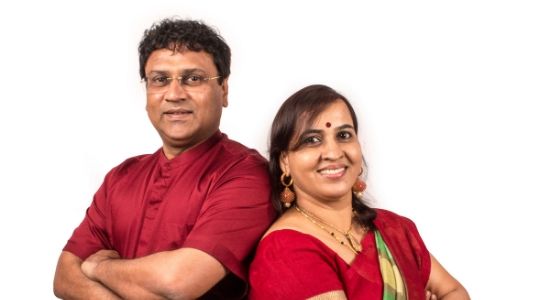
I started my career in 1983 with Voltas, handling Amul and Rasna. In 1999, I and my wife Lalitha Rao Sahib decided to start our own venture; she is, basically, from Udupi. We started with the nutrition supplement and were the sole manufacturers of Sunfeast pasta, Yippie pasta, Ashirvad rava idli for ITC for pan India during 2003-2016. The Sri Family Group also got associated with Dr Batra’s, Walmart and Elder Pharmaceuticals; we have our own R&D Center where we develop the product and manufacture for them on a long-term basis.
From 2011-2014, 87 vegetarian restaurants got closed in Mumbai because of the shortage of skilled labours; the UK alone requests over 1.2 Indian curry chefs. While the demand is increasing, there is also a shortage of supply. Back then many reports of Udupi concept restaurants closing down were rotating. We thought to rejuvenate that brand. Another thing we noticed that the younger generation was eating a lot of junk food. That’s how and why we came up with the concept of Café Udupi Ruchi. To give it a modern twist and attract the new-age diners, we gave the modern look and feel to our café, but the food we serve is traditional.
The Growth of Café Udupi Ruchi
We started Café Udupi Ruchi’s first outlet in 2014 in Bengaluru. We promoted it as the world's first chef-less vegetarian restaurant. We keep the freshness alive by adding vegetables. We use Curcumin, extracted from turmeric, to use it as a colouring agent in food. We don’t sell any beverages at any of our outlets neither water bottles. Today, we have eight outlets in Delhi-NCR.
In the South, we have at Avinashi highway (Pondicherry), Bangalore-Mangalore Highway, Trichi; we are planning to open one in Hyderabad as well.
Innovations at Café Udupi Ruchi
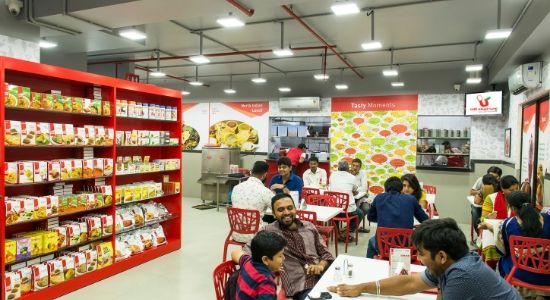
We are completing our fifth year in June this year. Along with more outlets, we will launch new products. We have software, Epic, that calculates the preparation time of each and every product, food delivering time; it’s in-house software.
Our maximum sales come between 9 to 11 pm as many vegetarian restaurants close by that time. Because of the technology we use, it’s easy for us to produce idli even at the closing time; we get to deliver it in nine minutes.
With technology, we are also helping curb the food wastage menace. Backward integration is done up to the factory level.
The software also calculates the orders for the previous year or week-wise data on consumption or food ordering. That’s how we prepare ahead. For example, last Tuesday if we sold 100 plates of idli, so the same day we will prepare 50 idlis in the morning. We have only 0.7% food wastage; controlling wastage to 1% is a surplus task.
The most-selling dish in South – Idli and Dosa, rava dosa and rava idli and thali items during lunch; The most-selling dish in North is Idli, Dosa and rice bowls.
The people in the 17-30 age group frequently visit our place. Families and other visits too but younger generation visit often.
Restaurant Models
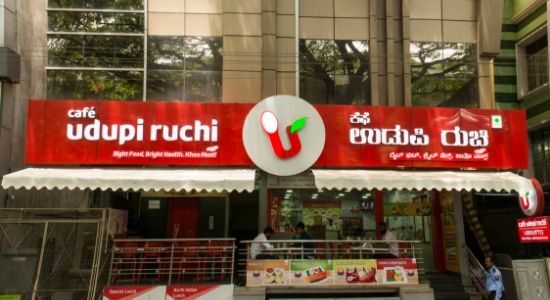
The restaurant runs on four business models - kiosk, express plus, gateway and highway.
The first is kiosk model – the area required is 100-220 square feet at the investment of Rs 12 to 14 lakhs; it requires about four to five people for operation; the ROI is 14-15 per cent.
The second is Express plus model – the area required is 600 to 900 square feet at the investment of Rs 20 to 32 lakhs; it is 10-12 seater. The ROI is 10-12 per cent.
The third is Cafe model –the investment required is 60 to 70 lakhs; it is more than 15 seats. The ROI is 10-12 per cent.
The fourth is the highway model – the investment cost lies between Rs 80 lakhs to 1.3 crores. The ROI is 9-10 per cent.
This excludes the franchise fees. The return on investment for the kiosk business model is 15 to 18 months, for the highway model it will take over 30 months and for the rest two - express plus and café – 24 to 30 months.
We have our own training centre; we have tied up with a lot of NGOs and, thus, recruit staff from there. We do not take tips from the customers. Based on the model, we have four different types of menu engineering. For each outlet, there's a set of menu products. We have our own niche in the market. When we do the market study we select some of the products which are not very highly competitive in the nearby outlet.
Criteria For Franchise Selection

Before deciding on the franchisee, we want to know why the person is interested in the business. We want them to build a long-term association. We have this franchise selection media which looks for the location, etc. We have a format and survey markets study. The franchisee has to undergo training for 12 days as the majority of people do not come from a background of vocal operations. We have our own Epic software.
After the operation starts, we do hand-holding for one month. By doing this we create a lot of entrepreneurs.

Born and brought up in Kashmir, Nadeem and Suhail both shared the same dream of starting their own business leaving their family business behind. This duo recently came up with a café which is creating a buzz in Downtown, Srinagar. Excerpts from the interview:
How did you come up with the idea of starting your own venture?
After completing my studies, I joined my family business. My father being a contractor by profession provided me with a platform where I could gain experience in the business industry. I worked with him for four years. During this time, I used to visit Srinagar often as we had a property over there. After a few visits, I witnessed that there are many food lovers who are residing there. That’s when the idea of starting something in the food industry struck me.
How is your venture doing with time?
We started getting a good response from people across Downtown and other parts of Srinagar as soon as we started our cafe. The positivity we wanted to provide is certainly showing its result. We started with 7 people in our café which has increased to 14 in number within four months and we are looking forwards increasing that too.
Why the name Downtown Café?
When we were planning to start our café, one of my friends suggested me this name and location. He told that the venture will do great at Downtown eventually grabbing a lot of people’s eyeballs. We then decided to open our venture here in Downtown followed by the name Downtown café.
What are the challenges you faced while starting and running your café?
Starting a venture over here was a big challenge in itself. Things are almost shut every now and then in Downtown because of political turmoils. I personally believe that there are challenges at every step of your life and overcoming them is the only way forward. We readily decided to face this challenge when starting our business in a place like Downtown. Honestly, it still acts as a hurdle in our business but we are now confident and motivated more than ever.
What were the design elements which you planned for your café?
We hired a professional for the construction of our cafe. As my father is in this business, things were not that difficult. Suhail having experience in the family business played an important role in designing the way Downtown café looks right now. My effort was to publicize whereas Suhail was looking after the interiors and decorations.
What is the uniqueness of Downtown café?
The space we provide at our café is unique in itself, as no other café has such extensive space. Adding to it is the quality of food and the service we provide to the customers visiting us.
How did you come up with the promotional idea about distributing free food for the complete two days?
It was my father’s brainchild. Being a social worker along with a contractor, he came up to me one day and told me about this particular idea. Adopting this method met two things-creating brand awareness as well as getting the opportunity to help.
What are your expansion plans?
Right now we are just trying to understand this business. We want to make this outlet a great success first and after the brand name is popularized, we will be expanding by opening other outlets in Srinagar.

How do you see women Entrepreneurship growing in India especially in the food business?
Currently it is a very exciting time for F&B in India, there is a great movement among diners who want to go out for experiential dining instead of just a quick meal. As we are in the business of luxury, for us this allows us the opportunity to showcase all premium aspects of our brand, whether it is the luxurious Single Malt cabinet at Hakkasan or our expensive private dining rooms at Yauatcha.
You are running multi brand under KA hospitality. How do you plan and execute your ideas well to focus on each brand?
Each brand is so special and unique- Hakkasan for its over indulgent nature, Yauatcha for its unique and intricate Cantonese dim sum along with unique pairing of French patisserie and Cafe Infinito with its arena to be creative and innovative with its dishes as it’s a home grown brand- I tend to execute ideas that go well with the brand as per the true nature of them as that is when they will flourish.
When did you actually thought of entering into the food business?
Hospitality and in particular food has been my passion since I can remember, it is something I share with my Father who founded the business, it is this love for the industry that made it a no brainer for me to get into the field.
Tell us about your expertise at KA Hospitality?
I try to bring in my fresh perspective in business strategy in creating a focused effort across all levels of the organisation which I believe will make any business foundation strong.
In terms of trend what trend do you see ruling in India in 2017 and going forward?
As I mentioned, people are very intrigued and excited about food whether it is the appearance (eating with the eyes), the actual plating - I think how you present food and the taste of it living up to it is really what is going to be the new trend. People no longer want to eat and run, they want to enjoy the entire experience that comes with it- the ambience, the vibe, the music, the tastes.
What new can we see happening at KA Hospitality?
We have been quite successful with our current brands and we are now looking to do something quite exciting in the Asian space which will be able to break ground like we did while bringing free standing Michelin star brands to India.
As we have seen Indian customers are becoming more demanding with understanding of ingredients and cuisine. How are you meeting the need of evolving customers?
This is quite exciting for us as we follow international standards. Most of our ingredients are imported. Hence explaining to the guests about our Cress that comes from Holland which goes in our Signature duck salad at Hakkasan or the Signature New Zealand lamb chops at Yauatcha only enhances the overall value and experience for our guests.
As a business strategist how are you redefining growth at your restaurants?
For us, it was always to reinvent and elevate the experience and get more and new diners to experience our restaurants is our goal- with people understanding and appreciating food more now- it has been great to see the kind of growth we are getting. Catering to our guest’s needs and wants is our first priority and staying true to that has always worked in our favour.
What is your expansion plan expanding your all three brands in India?
We are currently focusing on new dynamic spaces for our existing brands and also on openings for new brands.
When it comes to food business. Who do you see as your role model in India?
I think my role model would be Alan Yau- the creator of Hakkasan and Yauatcha, as he really disrupted the dining space during his time and delivered a product that beats everyone's expectation working so well with so many different cultures and markets.

Founded in Pretoria, South Africa in 1993, Barcelos has grown exponentially which led it to start franchising in 1998. It has been expanding continuously and enjoys its presence in 17 countries with 120 outlets.
How successful you have been in growing India?
We are very happy with the success and results in India. We have opened our first outlet 10 months ago, now this is our second outlet we are opening. At the present, we are hoping to open four more shops in next 60 days.
As you were looking for franchisees to expand your business in India, is this the franchisee outlet? What are the qualities do you see in your franchise partner?
For the time being, we are looking for more on corporate stores than franchise outlet ;however franchising is very high on our gowth Agenda for this year. The qualities which we look for is the dedication and hard work. It is not about the money but somebody who would contribute in the growing of the brand, looking for the shop and working on the parameters of the brand structures. Not just the investment in the shop but active partner in the business.
You have experimented with different colours of burgers. Would you have a standard or variable menu across stores?
Footfall has definitely increased with our coloured burgers, but it is really not for one product, we have many other products also. Our, sales are good and quiet popular among the youngsters.
Everywhere in India we will be having the same menu and standardisation. The menu will be identical in all the stores in India. But at the same time, in India the menu is little bit different from the rest of the world as we have vegetarian dishes to cater the urban population with varieties of Cocktails from Protogues.
What is your expansion plans? Are you working on any new concept or model to expand yourbusiness?
We are planning 40 outlets in next five years and that too in 12 biggest cities in India. We are working on couple of new food products but the model and the menu will be same. We have kept limited addition and want the customers to enjoy that only.

Falafal is the freshest concept in the restaurant business today. Beginning as a very small outlet, the group has expanded its services to IIM-Ahmedabad, seeking a great response and invite from the institute. And, with a target to achieve over 50 stores in 3 years, the juice brand is betting big on the highly ripe food business market.
Share your entrepreneurial journey and what led to the birth of your brand?
It was a thought that struck my mind in the office where I used to work before starting my own venture. Then I shared this thought with my parents who used to live in Mumbai at that time. So, then I started working on the strategy part and other things which eventually led to the birth of FALAFAL.
How many stores are there within your brand today and what is the average store size?
As of now we have 2 stores under the brand name of falafal. The average store size is of 700 sq. ft.
What are the challenges with growing your (franchise) business-i.e. maintaining standard, brand integrity, customer experience etc. and how have you addressed these challenges?
Yes, there are a lot of challenges when you are expanding, but I have strong and experienced team of people who work hard round the clock to maintain standard, customer satisfaction and all. Above all, we also have very strong IT support, that minimizes our problems and help in maintaining the standards.
As you are serving the freshest concept, how is the response so far?
So far we have got an overwhelming response. Within six month from the date of starting Falafal we got an offer for IIM Ahmedabad to open up an outlet at their campus. And now also from a small shop of 250 sq. ft. we have almost 1500 sq. ft. of space for the cafe at Drive in (our mother outlet).
What are the extended menu other than juice and shake?
Apart from juice & milk shake we have fast serving items like sandwich and wraps. We also have antipasti pizza, pastas and dessert as well.
What is the average duration a customer spends at you cafe and the average price break up?
More than 50% of business works on take always. But apart from that, a dine-in customer spends around 45-60 min at the cafe. The average ticket size is Rs. 200-250/-.
Do you have growth targets for next few years and any strategy for how you intend to achieve this?
Yes, of course. We are now looking to come up with 50 stores in 3 years across the western region via franchising.
How are you building on quality at a time when your model is based not on food but time?
It starts from the procurement itself. We buy the best brands and best quality fruits available and we have dedicated vendor for that. So, it helps us in maintaining the quality.
Where would you like to see your Brand in the next 5 years?
In next 5-7 years our target is to cover up major cities of India and is expecting around 200 stores in next 7 years. I see FALAFAL in the top brand of the nation.

Pabrai’s Fresh & Naturelle Ice cream was started in 2008 by Kunal Pabrai and Nishant Pabrai. The Pabrai family have been in the ice cream business for last 30 years and Anuvrat Pabrai, the father of Kunal and Nishant is the Mentor and advisor of the company. Pabrai’s main focus is to make best quality 100 per cent natural ice creams and aiming to deliver unparalleled experience to our customers across India and then the world. Seven years later in 2015 we have 25 stores across 10 cities and a healthy client list of over 85 hotels 250 restaurants and over 70 caterers.
What are the ranges of ice-creams you present in your menu?
We have broadly divided our offerings into the following categories- fresh fruit flavours, Indian flavours, Spice flavours, Sugar free flavours, Exotic flavours, Regular flavours with a difference. In terms of pricing we have ice creams scoops starting from Rs 39 to Rs 129. In 500 ml take away containers prices range between Rs 220 to Rs 350 with few super premium flavours priced at Rs 470.
Who do you see as your competition in the market?
Quite frankly, at present, we don’t see any one particular brand as a competitor. What we are creating and offering in natural flavours is unprecedented in India. We are our only competitor. Our range of natural ice creams is presently the largest in India and our strength is the strong line-up of Indian flavours. But there are brands like Haagen Daaz, Movenpick and few Indian brands which do have fairly strong brand presence in upper segment.
What qualities you refer to in a franchisee partner?
The franchisee should be able to run the business independently, good in accounts and finance related functions, able to follow written and verbal instructions properly, tech savvy enough to run our POS cum inventory software and also communicate via mail, comfortable in using Excel and Word.
How many franchise models do you have?
For franchisees, we have basically two formats – a standalone store model and a kiosk model. We also have a unique concept of Franchise Plus model wherein the first franchisee in a city gets to become exclusive logistical partner for supplies to HORECA clients and subsequent franchisees.
How do you do the marketing of your product?
We strongly believe in word of mouth publicity. Along with that, we use Zomato, Just Dial, fliers, food bloggers and social media to connect with consumers. As the core driver of our marketing is word of mouth publicity, our customers are loyal and act as our brand ambassadors by talking about and praising our brand to friends, relatives and others. This cycle keeps growing geometrically and has been the reason for our growth and our strong connection with our customers.
Where do you see yourself today in terms of revenue?
Although we are growing at 40-50 per cent per annum compounded annually, we have barely scratched the surface. The journey has just begun and we hope to keep growing year on year.
What is your expansion plans?
The major plans is to start the biggest strategic initiative COCO (Company owned- Company operated outlets). We hope to be able to enter new cities using our ability to run COCO outlets. Also, we are looking to commission our new production facility within next year, investing in upgrading our backend storage, logistics and delivery vehicles to keep pace with growth in volume. Human resources are being augmented by bringing in more people to man the growth and increase in revenues. We hope to open at least two outlets per month in coming year and hopefully double our store count to 50 by next year end. Introduction of newer product lines and flavours are in the pipeline. Upgrading in QC and testing facility in line with our promise to deliver highest quality product.

Tell us the success story of Baskin Robbins?
Over the last 70 years, Baskin Robbins has been the place for delicious fun treats. Whatever be the occasion, Baskin Robbins has always made the occasion memorable. Baskin Robbins has been a pioneer in the flavour story and has introduced over 1200 flavours globally. The “31” in the Baskin Robbins logo signifies the 31 flavours–a new flavour for each day of the month.
A key factor contributing to the success of the brand is the franchisee network. Baskin Robbins has over 600 parlours in India spread across 145 plus towns. Other factors contributing to the success of the brand are all our partners (logistics, raw material, advertising etc) and a fantastic and committed team.
What new product range you are offering this season?
We have expanded our product offering and are now offering “impulse products”. These are on-the-go sticks, cones and pre-pack sundaes available at retail stores in select cities currently. This range will be taken nationally over the next few months. Besides the mentioned products, we are developing a lot of new product lines that the country has not been exposed yet.
Who do you see your competitors in the market?
Competition to Baskin Robbins is only at a product format level. Over the years, Baskin Robbins has developed a niche of its own and we have our own followers who swear by the Baskin Robbins taste and variety.
What according to you is the top selling product? What is the revenue generated out of it?
We are a brand selling fun and are the world’s largest ice cream parlour brand. Our top selling products are our chocolate flavours as well as the ribbon infused flavours.
What is your marketing strategy that makes people re-visits your outlet?
Our marketing focuses on our consumers and ensures that they come back to us many times every month. Our friendly staffs at the stores, the ambience and product line ensures this. Our “flavour of the month” (a global marketing program) is the longest running marketing program.
Which section of market you love to focus?
Baskin Robbins focuses on Metro and Tier 1 towns nationally.
What is your expansion plan? How much is franchising helping in global expansion?
Baskin Robbins operates on the franchising model globally. We believe that this has been our recipe for success and has created many entrepreneurs. We are 100 per cent franchised, with each owner holding a stake in the business' success, while product development and merchandising are handled at Baskin Robbins headquarters. This hands-on, small business approach allows franchisees the ability to create a strong presence in local communities all over the world.
What opportunities you are seeking from the franchisee?
We seek committed individuals who will operate the business to spread “Happyness”. They must have a passion for customer service and be willing to serve our guests impeccably.

Tell us about your new outlet?
Falafel’s has always been about bringing a world of exotic Lebanese cuisine to Indian consumers. We take immense pride not just in sourcing the freshest ingredients, but also in the efforts we take to innovate and bring a world of choices to our consumers.
Is there any new menu addition with this outlet?
We have introduced a spanking new veg and non veg menu of Lebanese cuisine with this outlet. Over the period of time we have kept improvising the menu much variety. And, today people are moving towards healthier lifestyle and devoid of having all kinds of breads from bakeries we have come up with proper whole wheat breads, honey oat breads and multi grain wraps. The only thing fried in the menu is falafal bullet and rest everything is baked, roasted and made out of olive oil. We have also introduced something called Turkish tostada.
What about sourcing?
We are sourcing ingredients for Lebanese cuisine which is not very easy because these ingredients are not easily available. Now lots of imported ingredients are produced in India. We still import some of the things to keep it very authentic. We prepare lot of our own sauces. We don’t use those synthetic sauces. We prepare our own mayos, spicy sauce and dips. Around 30 percent of our ingredients are imported and 70 percent are sourced from domestic market.
Will you be introducing this new menu to all other outlets?
Yes, we will be introducing the menu to all our other outlets. This new menu has contributed 10-15 growth in revenue from this outlet.
What are your future expansion plans?
We are planning to open around 10 to 15 in Mumbai and Bengaluru by the end of 2016. In the first two years we are focusing on Mumbai and Bengaluru for expansion and then we will look at Hyderabad, Pune and other tier I and II cities. Some of these outlets will be company owned and some will be franchise owned.
In January 2016 we will be launching our first outlet in Bengaluru through franchising. Soon we are planning to launch our mobile app too. May be Falafal’s in future will have café or light kitchen or bakery could also be there. There will be kiosk model also.
How do you see Lebanese food market in India?
It’s been growing with awareness of falafel across the country which is resulting into Lebanese restaurants opening at every corner of the city like Mumbai. And which is why our brand at locations like Phoenix mall across Mumbai is doing well.
How do you see the competition in the market?
We don’t see any competition in the market. There are a lot of brands but lot of them are Indianised now and very few are proper Labenese. I respect everyone, there is space for everyone.
How you simultaneously balancing with the catering business?
Catering is always a challenge because one need manpower. We take the orders of house party, wedding party, birthday party and theme Lebanese party. We do the homework and do the right tie-ups for labor. We cater to the parties of around 10 to 200-400 people also. We have good experienced team working with us for more than four years.

As the steward of some of Australia’s favourite franchise, retail food brands including Donut King, Brumby's Bakery, Michel's Patisserie, bb's cafe, Esquires Coffee, The Coffee Guy, Pizza Capers Gourmet Kitchen, Crust Gourmet Pizza, Gloria Jean’s Coffee and CAFE2U , looking at a strategic entry to the Indian market. In an exclusive interview to Restaurant India, Andre Nell, CEO, Retail Food Group, shares about their international business and the entry into the Indian food arena. This will be second stint of Gloria Jean’s Coffee in India. What made you look for India as the next market to enter?
We acquired Gloria Jeans’ December last year. And today, with more than 105 million customer visits per year across an outlet network which boasts over 3450 stores across Australia and internationally, RFG has built an enviable reputation founded on its ownership of renowned brand systems, robust operating procedures, innovative marketing and a commitment to provide ongoing support to its franchisee community. We see India as a strategic location to open our franchise outlet as this market has grown enormously in last few years.
What competition do you see from the local players here?
Our history is based on system and processes and it dates back to 1999 with franchisee progress and brand standards. Coffee, for us is a significant part of the growth. Patisserie focus brands with have French heritage, Donut king with coffee and donut offers wide menu range and we have two very premium pizza brand and crust pizza. The brands are focused ingredients by giving the customers very premium offers.
What are your criteria for searching the right partner into the Indian market?
We are looking to engage with the right partner and ultimately to bring the entire brand to the market. First we will see that what we launch into the Indian market is successful. We are looking for a Master franchisee partner, but we are open to JV, depending on the capability of the partner. A person with strong Food and beverages experience and capability from a management perspective with a strong financial background to grow the brand into the Indian market would be our preferred partner.
When can we see the brand entering the Indian market? And which are the top cities in your radar?
We would complete initial deal in six months. We would target Mumbai and Delhi majorly. First focus would be on these two areas, tweak the menu accordingly and then expand.
Tell us about your global operations?
We have more than 3450 outlets in 58 territories across the world. Three top performing countries are Turkey, China and Malaysia. Initially, if we find the right partners in about 6-12 months would establish the brand into the market.
How much are you afraid of entering into the Indian market?
There is no doubt that India owns some of the good brands in the world, but we believe in our brand and our brand is a premium brand and we focus on it only.
Gloria Jean’s has already closed its operations here. Don’t you think it may affect your business?
Gloria Jean’s already closed in India when we acquired the brand in December 2014. So, we can’t comment on this. But, we really are very sure that with us Gloria jean’s can achieve in this market.
Don’t you think it’s too late to enter India as we have some of the amazing brands already doing well in the country?
We are hearing that the trend towards food and beverages is really picking up and we are very correct about the timing in that perspective.

Funduz is the brainchild of Vibhor Nuwal, an entrepreneur and a food enthusiast who came with the idea of infusing contemporary flavors to Mumbaiya VadaPav and present choices including traditional to modern varieties for the humble VadaPav creating its national and global markets.
Funduz was started with the thought of making the ethnic Indian food into a standardized hygienic snack delectable in taste. The idea was to take this regional food all over the country maintaining its yummy taste and creating variety and this was like most successful fast food chains across the world that have innovated and invested in technology around a single product.
Tell us how this idea was born? What are the products ranges of Funduz?
We are brand called Funduz and our product range is burgers, vada pav, raps, sandwiches, instants, shakes, mocktails etc. Before starting this venture I was looking at the operations at an MNC as a CEO for 17 years and then thought to go into food business as I have always been a food enthusiast.
We have a production unit at Mumbai where we tied up with countries best food supply chains.
What is your expansion Plans?
Our expansion plan is to open 100 outlets by the end of next year. We are presently at Andhra, Karnataka, Maharashtra, Gujarat, Orissa, MP, Rajasthan and Chhattisgarh.
How do you do your pricing?
We are very competitive in terms of pricing as our range starts from Rs 25-100 which is easily affordable. It even includes the taxes which are there.
How is your designing done?
We have our designer team from UK. They have design our outlet in a very nice way depicting all the angles what our outlet is all about.
How is your footfall?
The footfall is really good as many companies depend only on one product.
Which product is more revenue generating?
The products which are costly are more revenue generating. We make good profit in terms of noddles, vada pav. The franchisee makes a good profit for example like mocktails 50 per cent, shakes 55 per cent and instant foods 60 percent.
How do you see your competitors in the market?
We have certain competition in the market because of the date of birth they are today the market leaders. But, today we have far better products than anybody else and also provide better margins to the franchise. We have low cost products, so we are far better than others.
What opportunities you are seeking from the franchisee?
We want to enter 18 states by the end of next year. So, we will love to have franchisee based in any new city and enter in that state.

Tell us about your brand?
Kutchi King is quick service restaurant for Indian street food. We offer street food like Vada pav, Bhel, Sandwiches, Dabeli etc. without changing the authenticity of the product. We only ask the cook to order food and not frozen food. We also use only Indian spices and don’t use western sauces as others do. That’s what our brand is all about. We are over to 200 outlets in Gujarat and Maharashtra and plans to go pan India.
How do you do the pricing?
We tend to compare our price with the hawkers. Looking at our expenses and the competition around, we customise the price for the region. For example, we serve Vada pav in Bombay for Rs 15.
How much competition do you face from the street hawkers?
Every food business is our competition. Also they complement to our business. We don’t see anyone as a threat to us. But, the nearest competitors will be hawkers, because they can play with the price as they don’t have any overhead cost.
Who has done the designing of your outlets?
We have our in-house designers. Now, we also have finalised a design menu as per the outlet.
What are the key products which serve at your restaurants?
We serve mainly Bhel, Sandwich, Bread Pakora, Dabeli etc. But Dabeli is our key item, it is a spicy snack made by mixing boiled potatoes with a dabeli masala and putting the mixture between pav (burger bun) and served with chutneys made from tamarind, date, garlic, red chilies, etc. and garnished with pomegranate and roasted peanuts.
We are a pure veg restaurant and also serve the entire menu to Jain also.
What is your present revenue? And what is your target revenue for this fiscal?
Our present revenue is 15-17 crore. For targeted revenue, we want to grow profitable franchisee. Presently, we have 85 per cent profitable franchisee and this we want to take up to 95 per cent franchisee and that’s our target to get more revenues.

What is there in store with Tea Box for Indian customers?
India produces about 1billion kg of teas out of that 80 percent of CTC is consumed in India. The lowest quality of the tea is consumed in India and highest quality is exported. So our conscious effort is to change the culture from lowest quality of tea to better quality of tea over a period of time.
How Tea Box is fulfilling the consumer’s aspiration of having organic tea?
There is growing movement worldwide and consciousness among the people about what they consume. And hence we are making sure that consumer has access to all the information so that an individual consumer can make a conscious decision whether he want a tea free of all chemicals or he want a flavoured jasmine tea which is full of chemicals.
The second thing we are doing is bringing best tea from the world art ovens which are free from any preservatives and artificial chemicals. At Teabox.com we provide all the best single state teas from India and Nepal which otherwise consumer would never have access to.
How many countries you are shipping to?
We are shipping to around 91 countries in the world with the focus to make tea accessible around the world. We are venturing very deep into certain countries like Russia while eyeing China, Japan and Korea.
What will be the next addition in your offering of teas?
We have a state of the art R&D lab in-house which will be creating innovative products and blends. Presently we are experimenting with wine tea and whisky tea which will be available soon. Further we are planning to create our own herbal Ayurvedic tea in blends but for that we want to make sure we buy directly the ape ingredients from the farmers because we want to know how he or she is growing ingredients.
What are your retail plans ahead?
We aim to create 3 to 4 experiential stores in Mumbai, Bengaluru Delhi, Hyderabad and Chennai in India and in Chicago, New York, San Francisco, Vancouver, Tokio, Kuala Lampur and Singapore in overseas market. We will be opening our first retail store in the six to nine months in Bengaluru or Mumbai which will give us room to experiment in India.
Over a period of next two to three years we intend to open 10 to 15 stores. Thus we are doing focused marketing efforts in India for the next few months to make sure Indians have better access to best teas and probably India will become one of our major contribution market.
Tell us about your recent development of revamping the website to make it more competitive globally?
We have revamped the website with the launching of new brand identity. With this new identity the brand name remains the same. The identity and the way we communicate was probably one of the best as per the Indian standardbut when we are aspiring to be a global brand you cannot be sufficient with the what the level out there in India you have to look at a global level. We have hired one the best design agencies in US which has been working closely with us over a period of three to six months to create new revamp identity, a logo, new images and a renewed communication which can put us at a higher league. It aligns with a vision to build a premium brand which not only means offering premium tea it’s about the experience and look and feel as well.
What is a price range of you tea?
The price range starts from Rs 5000 per kg to Rs 1.5 lakhs per kg.
What is your growth percentage MOM?
We are growing by 25 to 30 percentage MOM.

NYC.PIE is a registered and trademarked brand owned by Double AA Restaurants Pvt. Ltd., a New Delhi based company. Raj who has over 30 years of experience working with the hospitality industry was personally getting sick and tired of eating pizzas from the brands in India. A one inch thick ‘maida’ crust with low quality ingredients was not his idea of a good pizza. But one didn’t have much of a choice. It was either this or getting into the car, fight traffic and head to a restaurant or a hotel for a decent pizza. Not great, but decent. Being a hotelier with a Food & Beverage background, he decided to open a pizzeria offering the real deal. And that’s how NYC.PIE was born. Targeting at revenue of 30 lakhs a month, Rao is looking for potential franchisee to grow and expand his business in Delhi and neighbouring cities. Here are the excerpts from the interview:
You were having a successful career with some of the top hotels globally. How and when did you plan to open a restaurant of yours own?
I always wanted to own a restaurant of my own and be an entrepreneur. It was two years back when I together with my partner, Deepak Datwani came with the idea of Fat Lulu restaurant serving pizza similar to the New York taste. And then I parted my ways from Fat Lulu starting my own restaurant NYC.PIE serving authentic New York styled pizza where nothing has been Indianised.
How is the response so far? What is the average footfall?
Response has been good in the last one and half year, we are running two outlets now in Bani Park Gurgaon and Defence Colony market, Delhi. People are appreciating our product as people are bored with the regular Domino's pizza and pizza Hut etc. Today they want something authentic and different kind of Pizza which gives them value for money.
Do you see any competition from the local market?
I believe competition is good for any business. It helps to create things. And, we are doing different kind of pizza. We are also upgrading our menu, next month we are coming up with 4 new pasta and 8 pizzas. Every three months we do menu sales summary based on the customer review.
What is your expansion plans?
We are planning to open over 50 outlets all over the country, and by 2016-17 we are also planning four franchised outlet.
How friendly are you with Franchise model of the business?
We have our second restaurant in partnership with the franchisee partner, Seven World Foods who are running the Defence Colony outlet. We believe franchising is the best mode to expand your business as there is an advantage of not putting in your capital in the expansion of the business. We are in talking terms with several franchisees and have shortlisted locations like GK2, Hauz Khas Village to open our outlets.
What are the support that you’ll give to your franchisee partners so as to keep the food authentic?
We will train the top management for two months, approve all the raw materials, hire the chefs and focus on delivering the best quality food.
What are the pricing range of your pizza and pastas?
Our price is 15 per cent higher than Domino's as we don’t use cheap quality products in our menu. We use good quality products as our customers are willing to try authentic food, since they are well traveled and willing to experiment.
How is the food and beverage scene in India changing?
In the past seven years, there is a huge rise in the restaurant openings and food hubs like Cyber Hub which which earlier didn't exist. This has led to the decline of Hotel food beverage scene but free selling restaurants are increasing like The Wine Company, Soda Bottle Openerwala.
Are you working on any new concept or model to expand your business?
We have couple of ideas but at first we want to scale the brand and take it forward. We have two concepts, one is small inventory model and the other one is full restaurant model.

How FiLLi Café has change the way tea is served across the UAE?
In beverage industry tea business has not given as much importance as coffee. Cafes were only meant for coffee and the concept of conversing over a cup of tea didn’t exist in the UAE. This was the biggest challenge in the journey of FiLLi. I created a homely ambience at FiLLi that made visitors feel like home. The signature FiLLiZafran Tea was appreciated by people as they could chat for hours while immersing themselves in the joy of a warm, soothing cup of tea. Thus, this way the journey of FiLLi was began, where visitors could ‘Tea n Talk’ and gradually made FiLLi as their second home in the UAE.
What new product range you are offering for your customers? Which is the fastest growing product?
We have introduced breakfast menu, milkshakes and loose tea. Milkshakes are the fastest growing product and we have 21 flavours of milkshakes.
Which section of market you love to focus?
Dubai has a serious food culture and that is what we are tapping into. By 2020, Dubai is expecting 20 million tourists with a rise of 10.6 over 2012. Even the local market is also very strong and willing to try new concepts. With the increasing appetite for out-of-home dining and growing discretionary wealth in the Middle East, there is plenty of room for brands like us to expand their business.
Our main target is low and middle class, working, students and tourist people. And our average ticket size is AED 20 (USD 6).
What is your marketing approach to survive in this market?
Since, we completed our franchise plan; we have a serious approach towards marketing. Recently, we have done smart and effective branding for our existing stores. As marketing strategy, we are also focusing on our brand positioning, menu re-engineering and employee training. We have a very active social media pages as part of our digital marketing.
What is your expansion plan in terms of numbers of outlet?
100 outlets and still running; by 2020, we have ambitiously planned to have 100 principle stores in the UAE. And by 2017, we intend to have 30 stores in UAE along with 70 franchises around the world. In India we have plans to open 300 outlets in 10 years.
Are you also planning to take franchisee route?
Yes, we are expanding our business globally using franchise program. The franchise option will be available in all the other countries except UAE. In fact, the plan has been set in motion with the first franchises for five outlets already being signed off in Qatar. The brand has also set up a dedicated team for expansion in the UK and India.
Tell us about your journey as a young Indian entrepreneur who started with a small roadside café FiLLi.
I am very fun loving person and enjoy being with friends. The history of the name FiLLi traces back to my school days, where my friends gave me the title FiLLi. But little did anyone know that this name was given for the sake of fun would one day lead to the establishment of FiLLi.
The signature FiLLiZafran Tea is a result of my own determination to introduce a specialty tea that people would love. After being a hit amongst UAE’s tea lovers, my aims is to take this taste global by reaching out to every tea lover and make them fall in love with tea all over again.
Meet this Young Entrepreneur and Speaker at Franchise India 2015 on 18th and 19th of October at Pragati Maidan.

What is the business format for operating a Sagar Ratna franchisee outlet in India?
We need around 400 to 3,000 sq ft space in an appropriate location depending on the type of format. We operate Base kitchen formats, Service kitchen formats and Kiosk based formats that suit the location to get the best ROI. We operate in hi-streets, malls and hospitals too. Our format is all about producing fresh and good quality food daily, sometimes twice or thrice in a day. We differentiate ourselves by the food we make and the processes we follow to make it fresh from raw ingredients daily and apply skill so as to standardise cooking across locations. We are in the business of making fresh food like our homes with grandma’s recipes esp. in the core South Indian range of our products and that’s how we differentiate ourselves.
What are the elements that one needs to keep in mind while choosing a Master franchisee and a Sub-franchisee?
Ideally, if the prospective franchisee has a commercial property that can be used to open a restaurant in a good location, a willingness to invest in building customer loyalty, understand importance of quality to grow business in the long run and manage employees to keep attrition low, we will be keen to work with such partners.
How does one decide on locations? Is the franchisor or the franchisee responsible for taking such decisions?
We have different formats for different locations. Locations ideally are assessed for business potential based on the Footfalls, Residential households and the type of households, Strength of offices or work places, Competition intensity, Price sensitivity and importance of the location for people to visit (What need). We share our learnings on the site selection with our prospective franchisees.
What is the Revenue Sharing model between the two?
Royalty is not a fixed amount for us and it’s always a revenue share so that our growth is dependent on our partner’s growth. It’s a fixed percentage for the period of the franchisee term. We are assessing possibilities of increased percentage over a period of time as a model but this is only a discussion at this stage.
What is the Growth Prospect and Future agenda for the segments in India? Who is your top selling franchisee?
We strongly believe health and nutrition will become important over time. We are rightly positioned now by making fresh foods with fresh ingredients and focussing on the health aspect as well apart from being fresh. We see a very high demand for the category that we operate in as the demand for our products are from breakfast till dinner. There are very few foods that are conducive for consumption across all meal hours including mid-meal snacking as well…

What are the different types of teas served at your place? What is the difference in fine tea, flavour tea or signature tea which you are serving at CHA Palace?
We have three product ranges in our Fine Tea range- we offer handcrafted green, oolong and black Darjeeling teas. All are low in tannins and an excellent choice for the health conscious. Strong and full bodied is our Flavour Tea range that offers exquisite fruits, flowers and spices in natural form infused with black leaf tea. Our Signature Tea range features two exclusive and rare white teas from premiere single origin states in Darjeeling.
There are many tea brands. How much competition do you see with them?
We have launched with over 15 single state, fine harvest teas and exclusive loose leaf tea blends in the luxury segment. What truly differentiates our offering is our ‘culture in a cup ’ proposition we have attempted to elevate the Cha experience here and distil signature blends from the most premiere tea plantations in India to captivate the palates of Indian and international consumers, at a strategically economical price point.
Who are your target customers? How did you execute for your target customers?
Cha Palace teas are targeted at chic, cultured achievers from all walks of life from Entrepreneurs and corporate to patrons of the arts, authors, curators, designers, music composers, visual artists and ethnographers among others. We cater to the ever-expanding expat community in the country, especially in embassies, and affluent NRIs in overseas markets. From our brand’s tone of voice to our signature regal packaging to our marketing strategy is aimed at fusing Indian heritage and culture with the sophistication and global references of the jet set.
What is your marketing approach to survive in this market?
To thrive not survive in this market; we have created an exclusive online portal where all our three ranges of teas are retailed. We are very careful about where our teas are seen and are marketing through select exhibitions, exclusive print tie ups and digital marketing.
How do you decide on pricing keeping your customers in the mind?
It’s been said that tea is the most affordable luxury in the world and we have carefully planned our pricing to be perceived in that manner by our target group. Our pricing structure for our luxury teas is designed to encourage frequent tea purchases and daily tea drinking, while our higher priced Signature Tea Range is priced for special occasions and bespoke gifting.
Any new launch is expected in near future?
We are very close to launching a sub brand under Cha Palace, for people under 35 with modest to high disposable incomes.
What is your expansion plan in terms of targeted cities?
We ship pan-India through our online flagship e-commerce store (www.chapalace.com). We are partnering with luxury and heritage hotel chains, gourmet food stores and restaurants in our target cities.
Are you planning to sign any franchisee deal?
We aren’t considering a franchisee deal in the next few months, but it is on the cards for 2016.

What are the challenges you faced to succeed in India?
In India model is a big challenge wherein we can bake fresh cookies in the shop, create aroma and then sell them. For cookies, I want an Enclave environment and right location preferably a mall. As soon as one enters the mall, he should see us in first 5 minutes. And finding such location is the biggest challenge.
We are an Impulse product. And it is getting very tough to make the cookies available all over India, including Nepal and Bangladesh.
What new product range you are offering for your customers? Which is the fastest growing product?
We launched Macroons in Chennai recently and also planning to launch the product pan-India. In new product Donuts is performing very well and in old product Crispy Crunchy cookies and Chocolate Dipped cookie are fare performers.
There are many cookie brands. How much competition do you see with them?
Our competition is not with the retail shop. Our competition is basically with Donut play, Candy, Ice Cream parlor. So, there is no direct competition but there is indirect competition as we are impulse product.
What is the market size of this segment?
The market size is around 150-200 crores. And the turnover is 45 crore.
What is your expansion plan?
As of now, we have 70 stores and still growing in many malls. Launch in terms of stores, yes in Agra. We also plan in other places in Kolkata, Cochin etc.

When can we see Sumo Sushi & Bento opening their first outlet in India?
If everything works out well, Insha’Allah we will be opening our first outlet in 2016. We are here in the process of identifying and selecting prospective franchisees as per our business plan in India. As per our business plan, we will divide India into three regions and each region we are looking for ten franchisees and a master franchisee.
What are the requirements you are looking into a franchisee partner?
The first and foremost criteria are that the partner must have the knowledge of the food industry and we are also open to individual investors who can invest in the food online.
Tell us something about Sumo Sushi & Bento’s operations into the global market?
At this point Dubai is our top selling country mainly because of its origin followed by Bahrain and Oman. We have recently got the license to operate in the US market. And now we are the first Japanese restaurant from Middle East to enter into the US.
How many outlets do you have presently? What is your expansion plan?
At present we are operating 13 outlets which will be 14 by the end of this year. We are also planning to take the number count to 17 by next year adding three more outlets in 2016. And then we will be adding 2-3 outlets every year for the next five years.
What are the numbers that you are targeting for Indian market?
In total India has a capacity to operate 30 outlets in next five years starting from Delhi-NCR, Jaipur, Mumbai and all the main cities. We have done our research in India with the help of Franchise India to understand the Indian market- which are the booming town, do we need to change our menu-If yes, how much of it, logistics because we deliver a fresh dish and it has to be fresh on daily basis so we had to look for local suppliers. So, in general we are looking for 30 outlets, 10 outlets per region.
What are the challenges of operating a Japanese restaurant?
The first challenge that we go through is the product knowledge. Hence, the first thing we started doing was putting enough of pictures with the menu, enough customers to make a profit, supply chain and the communication on how to touch all these points to the desired customers are other challenges.
What is your view about Indian cuisine? Who do you see as your target in the Indian market?
Indian cuisine is one of the strongest cuisines in the world. Anywhere in this world you will see there is sunshine, there is an Indian restaurant. Whether it is authentic or contemporary it is an Indian restaurant. So we are always after the young and upcoming Indian, the world travelled people as technology has given this country a lifeline unlike before. And because they are knowledgeable, they are willing to try and experiment.
While entering into the Indian market, will you be serving the authentic Japanese cuisine or you will be tweaking the menu according to the local taste?
We are a casual dining chain, a family friendly chain with affordable menu. While we will always look for the alteration of the menu, what the local customers like. We have already moved sensitive items like Beef and Pork from our menu because the Hindu and the Muslim population have a huge population in the country. We started preparing for India last year. We created a menu that is all vegetarian.
Copyright © 2009 - 2025 Restaurant India.






